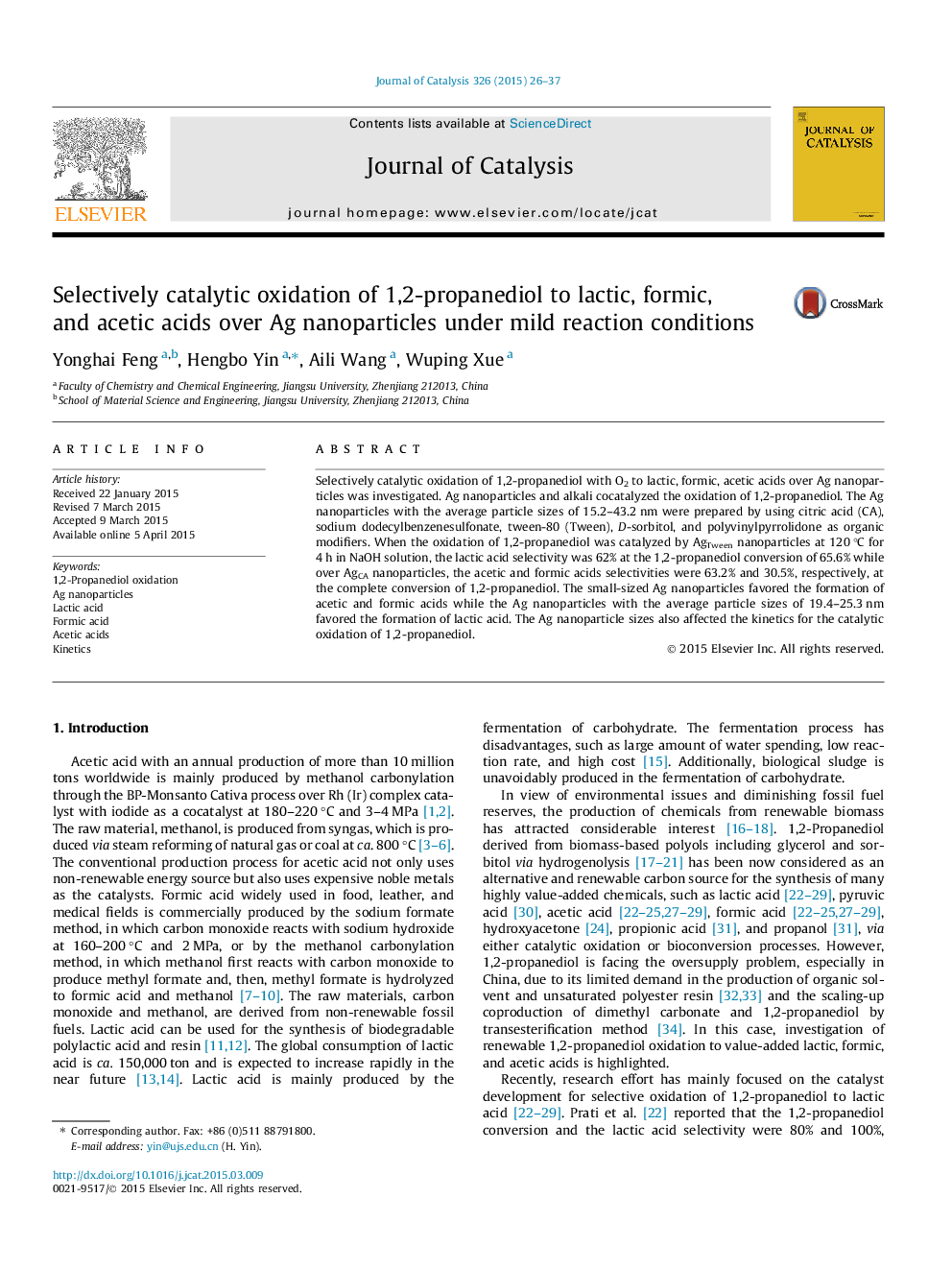| Article ID | Journal | Published Year | Pages | File Type |
|---|---|---|---|---|
| 60849 | Journal of Catalysis | 2015 | 12 Pages |
•Catalytic oxidation of surplus 1,2-propanediol to valuable chemical is highlighted.•Ag nanoparticles and alkali cocatalyzed the oxidation of 1,2-propanediol.•Lactic, formic, and acetic acids were the main products over nanosized Ag catalysts.•Particle sizes of Ag nanoparticles were tuned with different-structured modifiers.•Size effect of Ag nanoparticle was obvious in catalytic oxidation of 1,2-propanediol.
Selectively catalytic oxidation of 1,2-propanediol with O2 to lactic, formic, acetic acids over Ag nanoparticles was investigated. Ag nanoparticles and alkali cocatalyzed the oxidation of 1,2-propanediol. The Ag nanoparticles with the average particle sizes of 15.2–43.2 nm were prepared by using citric acid (CA), sodium dodecylbenzenesulfonate, tween-80 (Tween), D-sorbitol, and polyvinylpyrrolidone as organic modifiers. When the oxidation of 1,2-propanediol was catalyzed by AgTween nanoparticles at 120 °C for 4 h in NaOH solution, the lactic acid selectivity was 62% at the 1,2-propanediol conversion of 65.6% while over AgCA nanoparticles, the acetic and formic acids selectivities were 63.2% and 30.5%, respectively, at the complete conversion of 1,2-propanediol. The small-sized Ag nanoparticles favored the formation of acetic and formic acids while the Ag nanoparticles with the average particle sizes of 19.4–25.3 nm favored the formation of lactic acid. The Ag nanoparticle sizes also affected the kinetics for the catalytic oxidation of 1,2-propanediol.
Graphical abstractFigure optionsDownload full-size imageDownload high-quality image (70 K)Download as PowerPoint slide
